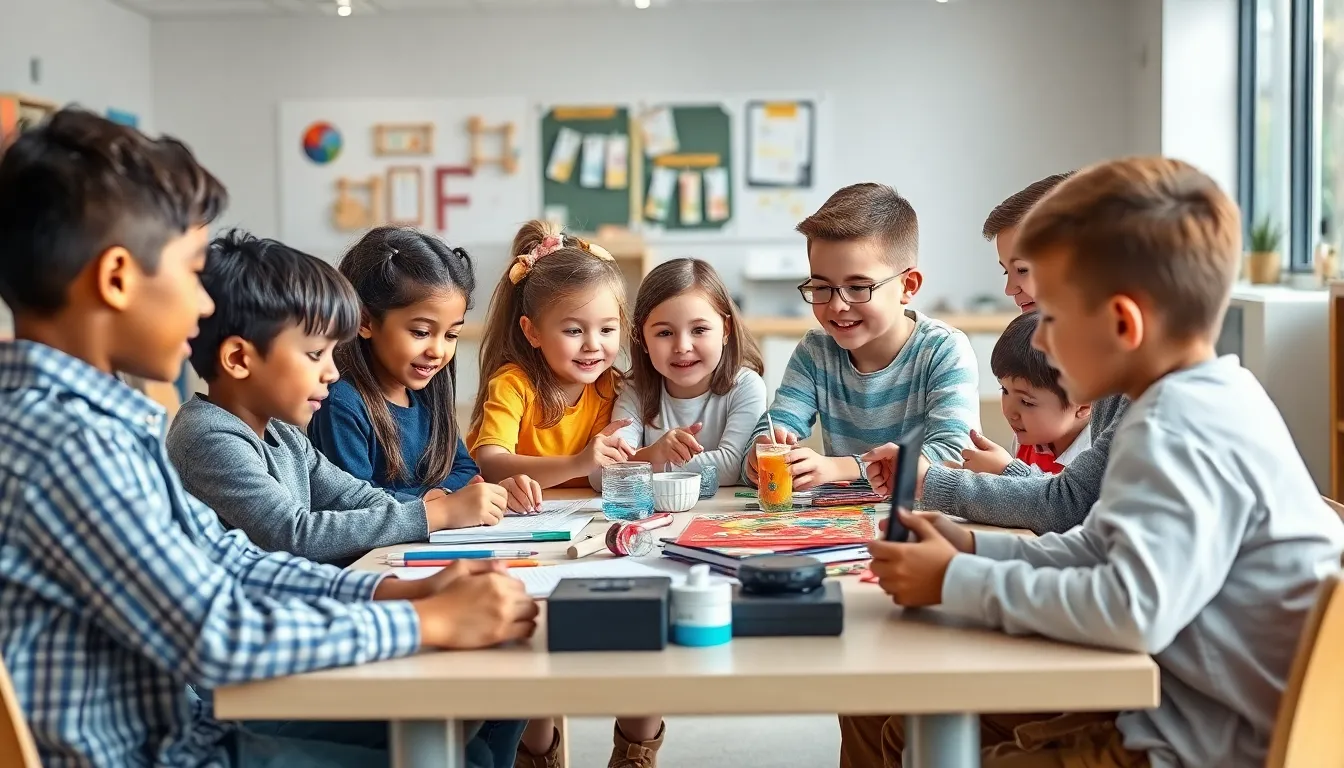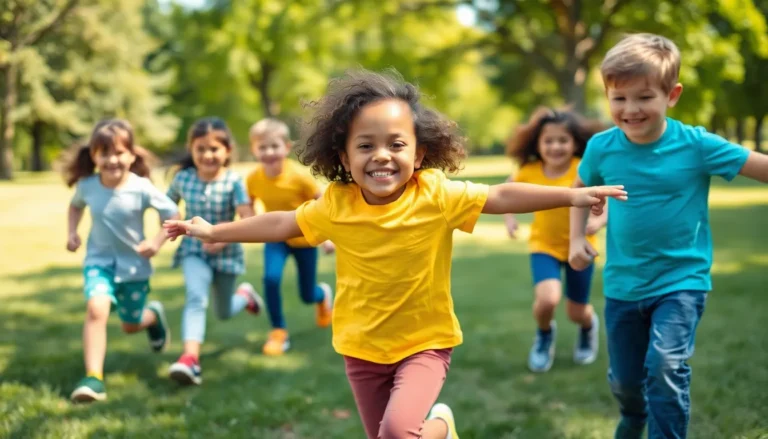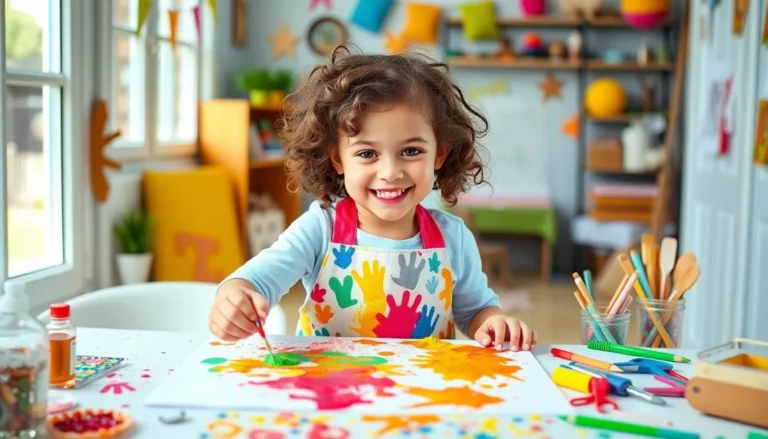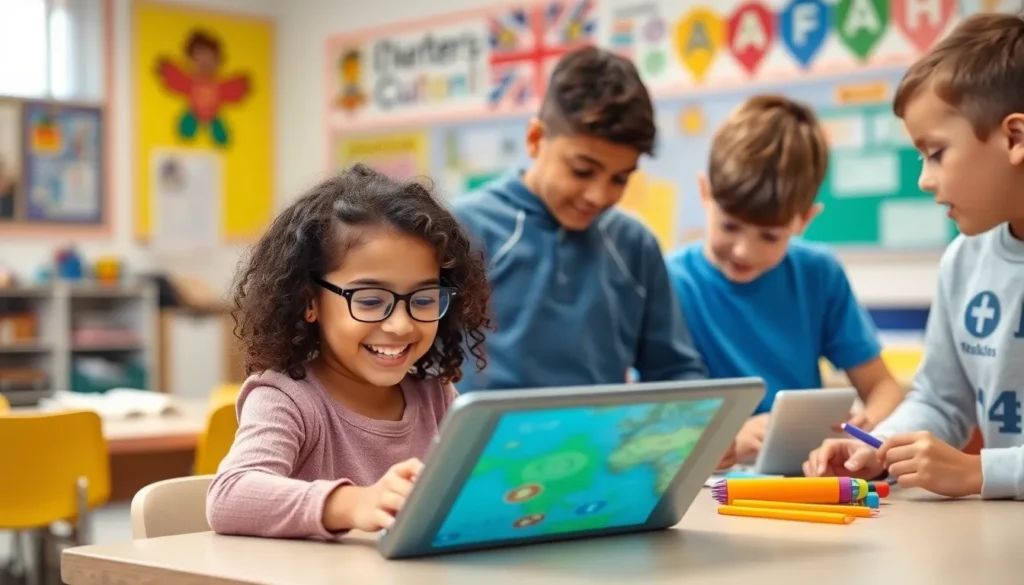Table of Contents
ToggleIn a world where cookie-cutter education often reigns supreme, personalized learning for children emerges as the superhero we didn’t know we needed. Imagine a classroom where each child’s unique strengths and interests take center stage, turning learning into a thrilling adventure rather than a monotonous slog. This isn’t just wishful thinking; it’s a game changer for parents and educators alike.
Understanding Personalized Learning For Children
Personalized learning for children focuses on adapting education to meet individual needs. This method recognizes that every child has unique talents and preferences.
Definition and Key Concepts
Personalized learning tailors educational experiences to each student’s strengths and interests. It involves flexible pacing, allowing children to progress at their own speed. Learning paths vary, with students choosing topics that resonate with them. Teachers utilize technology and assessments to create custom learning plans. Feedback becomes ongoing, ensuring adjustments meet each child’s needs.
Importance in Modern Education
The relevance of personalized learning in modern education is profound. It fosters engagement, making learning enjoyable and relevant. Children develop critical thinking skills as they navigate their learning paths. This approach promotes independence, encouraging students to take ownership of their learning. Research indicates that personalized learning improves academic outcomes significantly, providing a compelling alternative to traditional methods. Schools embracing this model often see enhanced student motivation and achievement.
Benefits of Personalized Learning For Children

Personalized learning offers numerous advantages tailored to each child’s needs. These benefits enhance the educational experience significantly.
Enhanced Engagement and Motivation
Students exhibit higher levels of engagement in their learning when educational experiences align with their interests. Interest-led topics foster curiosity and promote active participation. Motivated students take ownership of their learning, leading to improved retention and better understanding of concepts. This approach enables teachers to connect students with resources that resonate with them, encouraging exploration and creativity. Increased motivation also positively affects academic performance, resulting in higher grades and better assessments.
Tailored Instruction and Learning Paces
Customizing instruction according to individual learning paces ensures students grasp concepts fully before moving on. Children who advance at their own speed demonstrate better comprehension and confidence in their abilities. Teachers adjust lessons based on ongoing assessments, ensuring no child is left behind. This adaptability promotes a deeper understanding of the material, fostering critical thinking skills and independence. Structured flexibility allows for targeted support, ultimately leading to improved academic outcomes.
Implementing Personalized Learning For Children
Implementing personalized learning requires strategic planning and a focus on individual student needs. Educators play a crucial role in this transformation.
Strategies for Educators
Creating adaptable lesson plans stands as an effective strategy for educators. Engaging with students individually allows for better understanding of their strengths and interests. Incorporating diverse instructional methods caters to various learning styles, promoting inclusion. Regular assessments guide teaching adjustments, ensuring that learning aligns with each student’s progress. Establishing strong relationships within the classroom encourages open communication, essential for successful personalized learning.
Role of Technology in Personalization
Technology serves as a powerful tool in personalizing education. Innovative educational software allows for tailored learning paths based on each child’s abilities. Real-time data collection supports ongoing assessment and immediate feedback, enhancing student engagement. Learning analytics inform teachers about individual progress, enabling timely interventions. Interactive platforms foster collaboration and autonomy, helping students take charge of their learning journey.
Challenges and Considerations
Personalized learning presents several challenges that educators and stakeholders must address. Identifying appropriate assessment strategies for diverse learning paths remains essential.
Assessment and Measurement
Emerging assessment methods must evaluate personalized learning’s effectiveness. Traditional tests may not capture a child’s progress or understanding accurately. Therefore, educators require ongoing formative assessments that provide real-time insights. Utilizing diverse tools, such as portfolios and observational assessments, can also reveal a student’s growth in various skills. Tech-enabled assessments can offer tailored feedback, helping educators adjust their teaching strategies accordingly. Effective measurement strategies foster an environment where every child’s achievements receive recognition.
Equity and Access Issues
Ensuring equitable access to personalized learning resources presents significant challenges. Not all children have the same access to technology or support, creating a disparity in educational opportunities. Schools must prioritize investments in technology infrastructure to bridge this gap. Additionally, districts need to implement professional development programs for educators, ensuring they possess the skills required to deliver personalized learning effectively. Inclusive practices should be at the forefront, so all students benefit from personalized approaches regardless of their background. By addressing equity issues, educators can create a more inclusive learning environment.
Personalized learning represents a significant shift in educational practices. By focusing on each child’s unique strengths and interests, it cultivates a more engaging and effective learning environment. This approach not only enhances motivation but also fosters independence and critical thinking skills.
As educators embrace technology and innovative assessment methods, they can tailor educational experiences that cater to individual needs. While challenges remain, such as ensuring equitable access to resources, the potential benefits of personalized learning are undeniable. By prioritizing these strategies, schools can create inclusive environments that empower every child to thrive academically and personally.







